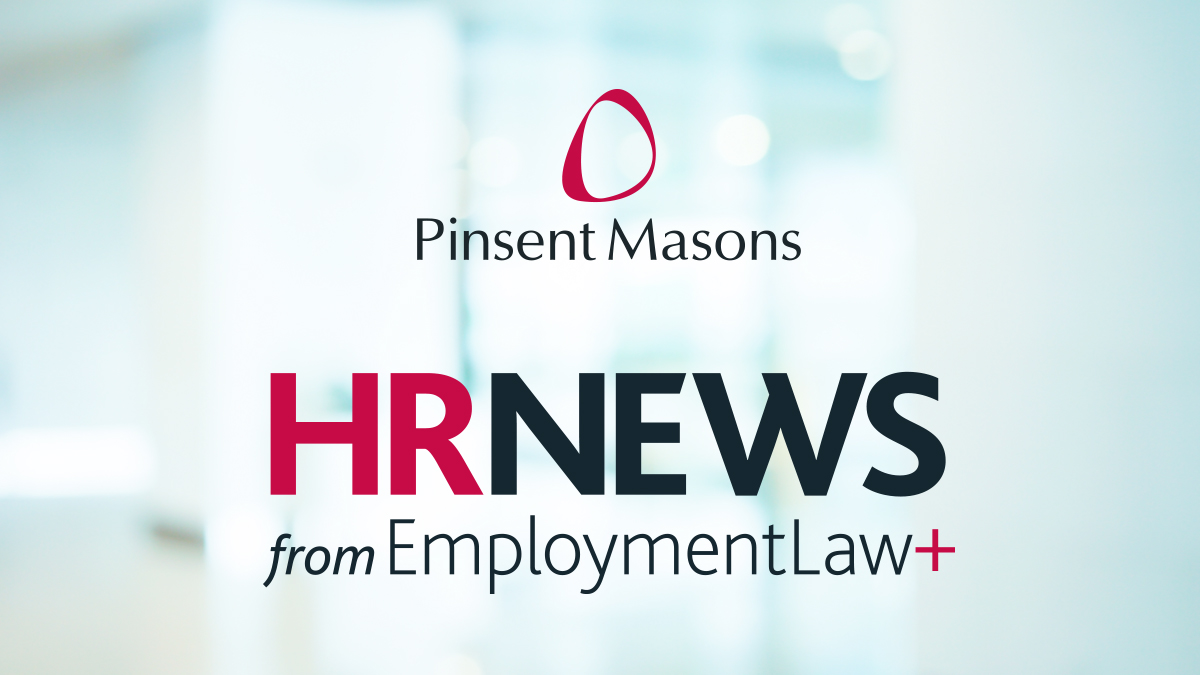The Pensions Ombudsman has handed down a ruling which serves as a timely warning to employers and trustees about the risks of getting it wrong when distributing death-in-service benefits. The case concerns a workplace pension scheme, but it has clear relevance for death-in-service arrangements more broadly, especially where payments are discretionary and based on who qualifies as a ‘dependant.’
It matters because many HR teams play a key role in helping trustees gather information after an employee dies, but when that information is incomplete or not properly investigated, it can lead to complaints, legal challenges, and, as we’ve seen here, a requirement to revisit decisions even after the money has been paid. We’ll hear from a tax expert with experience of advising on these types of cases.
This was a complaint brought by the mother of a deceased scheme member against the trustees of the Welcome Trust’s pension scheme. The member had named a dependent partner shortly before his death, but the executors later raised serious concerns about her conduct and highlighted that both the member’s mother and ex-wife had also been financially supported by him.
Despite this, the trustees awarded both the lump sum and the dependant’s pension to the partner, stating she was the only person who qualified under the scheme rules.
The Ombudsman disagreed. He found that the trustees had not made sufficient enquiries into whether the mother or ex-wife also met the criteria to be considered dependants or potential beneficiaries. That failure meant the decision was based on incomplete information and would have to be revisited, even though the money had already been paid.
The key takeaway for HR is that accurate, timely information at the point of death is critical, but so is following it up. If there’s evidence that others may qualify as dependants or potential beneficiaries, that needs to be investigated fully.
So let’s hear more about that. Chris Thomas is a tax specialist who advises on this issue from time to time and earlier he joined me by phone to discuss it. I put it to Chris that whilst this case concerned a pension scheme nonetheless it’s useful for HR to know about:
Chris Thomas: “Yes, I think that's right. So it did arise in the context of a pension scheme but I think this has got wider application to death in service schemes generally, some of which might be set up in the form of a pension scheme, and some not but I think the same principles would broadly apply. Obviously death in service are a very common and, indeed, valued benefit that most employers will offer and usually the way it would be set up is that a group company would act as trustee of the scheme and so it will therefore have the responsibility to decide how payments that arise under the relevant insurance policy on the death of the individual should be applied and obviously we could be talking about pretty large amounts of money here, and the company will have fiduciary obligations as trustee. So that's kind of the context of this case.”
Joe Glavina: “Can you explain how the problem the employer faced in this case could arise in the context of death in service?”
Chris Thomas: “Yes, sure. So these types of trusts, they always work on what we call a discretionary basis. So what that means is that there'll be a class of people who are defined in the trust deed who could potentially be chosen to benefit from the lump sum that pays out under the insurance policy, and that will usually be spouses, civil partners, children, grandchildren, but it can also be wider family and it can include people who are in some way dependent on the deceased and it often would, in fact, and anyone else who they may choose to specify in an expression of wish form. So the key thing, really, and what went wrong in this case, I think, is the first step is to understand, I suppose, what the trust deed actually says regarding who you can potentially choose from, but then also to actually do some due diligence to establish who's on the scene, if you like, what their circumstances are, the nature of their relationship to the deceased and, importantly, were they in some way being maintained by, or were they in some way financially dependent on, the deceased in the period before death because if they were, that's quite a material thing to know as in this case because what basically went wrong here was the trustees knew that the deceased had got a dependent partner and essentially they looked no further, whereas, in fact the mother of the deceased, and in fact the ex-wife of the deceased, had both been receiving financial support from him. So although they had part of the story, they didn't have all of it and there were other quite material bits of information that they just didn't really properly look into, despite actually potentially being put on notice by other members of the family. Instead, they just kind of carried on in a slightly blinkered manner with their intent to benefit the partner and what that resulted in is basically then being ordered to take the decision again, and having to, probably, if they come to a different conclusion, pay out twice which is clearly not a great result.”
Joe Glavina: “Just thinking about the administration, there’s going to be a certain amount of record-keeping which will be needed for these death in service benefits, beneficiary nomination forms and so on. Is this a job for HR?”
Chris Thomas: “Yes, it often will be. Who exactly it sits with will vary to some extent between different organisations but in my experience it often would be HR who are involved, or probably should be getting involved, with this to make sure it's being dealt with properly. The key thing really is to make sure that you're taking into account all the relevant circumstances and actually doing some due diligence and properly applying your mind to it because if you do that, and you can show you've done that, that's very protective and someone might come along subsequently and say, well, you know, hang on a minute, why have you paid it to X when you should have paid it to Y? Sometimes it can get a bit acrimonious when there's large sums of money available. Some employees have quite colourful personal lives in, our experience, and it can get quite complicated. So to have at least thought about, if you can show you’ve done that, then it's quite difficult for anyone to actually successfully challenge the decisions you've reached whereas in this case, unfortunately, they hadn't really done that.”
Joe Glavina: “You mentioned this often involves large sums of money. What is the cost of getting this wrong, potentially.”
Chris Thomas: “Well, it will vary, but quite often it will be at least four times salary. Sometimes it's eight times salary. So, particularly if we're talking about employees who are medium to high earners it can run into several thousands of pounds, potentially. It won't always be that much but it certainly can be. So, yes we're talking about quite large sums of money here and we have seen cases where employers have, effectively, ended up paying out twice, out of their own resources in the second case. So, yes, it can be quite a significant liability. The other thing I was just going to mention here as well because it's an associated issue we see come up quite a lot, the other problem area very often, is where there's a benefit to someone who's still a minor. So let's say, the deceased has left a child and the intent is to kind of to benefit them, you just need to be a bit careful how you go about doing that because obviously you can't pay them directly. So some kind of trust arrangement is going to be needed to be set up and, in our experience, it doesn't always get thought about as much as it might. So what sort of trust do you want? Do you want a simple trust which they get at eighteen? Do you want something a bit more longer lasting maybe if it's a large sum of money and you don't want them to get their hands on it all at that point. There’s a limit to how far the employer needs to get involved with this but they will need to have some assurance that whatever is set up by the family is actually going to do the job and is appropriate and consistent with the decision they've made as trustees. So yes, just another point to watch out for and get advice on if you need it.”
That case is Mrs R v Wellcome Trust Pensions Trustee Limited and is a decision of the Pensions Ombudsman. We’ve included a link to the judgment in the transcript of this programme for you.
- Link to decision: Mrs R v Wellcome Trust Pensions Trustee Limited
Chris Thomas tells HRNews about the importance of conducting thorough due diligence of potential beneficiaries before making death in service payments.

-
Transcript


